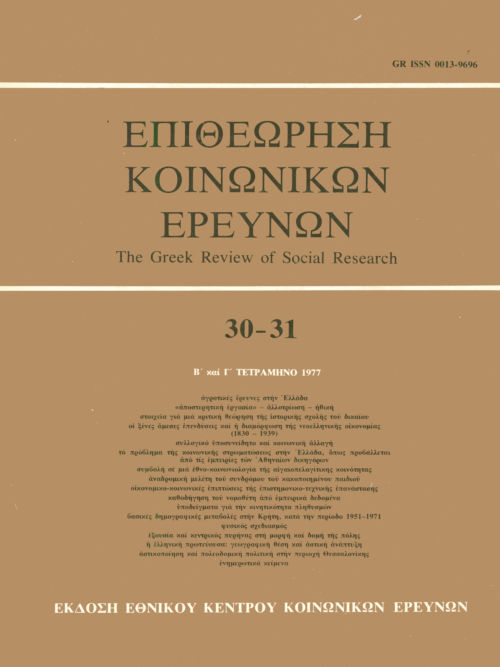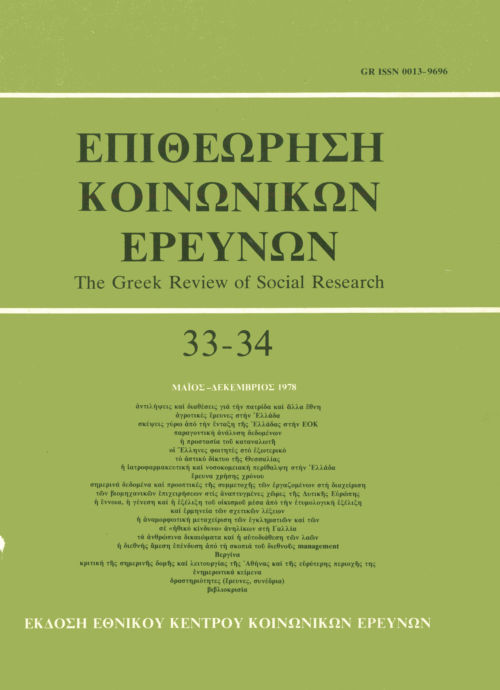Rural Greece revisited
Abstract
Fifteen years after a thorough survey in a Greek village, can the
distance covered be measured? In real life, this distance seems enormous.
Rural Greece is no longer isolated neither in its geographical
situation, nor its mentalities, nor its human aspects. Has this bettered
and deepened our knowledge of the Greek countryside? Or, to put
the question in another way, has this reduced the economic, psychological
and cultural gap between city and country? At the same time
we must note the numerous melting-points shared by rural and
urban Greece: whether a momentary trend or a deep-seated evolution,
the «urbanization of the countryside» has made headway
in a country which was neither very urbanized nor very industriali^
ed. Finally, beside regional discrepancies, social and economic
disparities in the rural world have been accentuated between those
who know how to benefit from such an evolution and those
destroyed by this evolution. Yet, many of these unsettling influences
were potentially present in the traditional rural society. Turning to
history — by closely studying local sources and clearly understanding
what divides Greek rural societies — should allow us to examine the
demographic future of the Hellenic countryside better than many
macro-economic surveys: history undoubtedly remains the key to its
understanding and planning.
Article Details
- How to Cite
-
Burgel, G. (1981). Rural Greece revisited. The Greek Review of Social Research, 11–17. https://doi.org/10.12681/grsr.544
- Issue
- 1981: Numero Special
- Section
- Articles

This work is licensed under a Creative Commons Attribution-NonCommercial 4.0 International License.
Authors who publish with this journal agree to the following terms:
- Authors retain copyright and grant the journal right of first publication with the work simultaneously licensed under a Creative Commons Attribution Non-Commercial License that allows others to share the work with an acknowledgement of the work's authorship and initial publication in this journal.
- Authors are able to enter into separate, additional contractual arrangements for the non-exclusive distribution of the journal's published version of the work (e.g. post it to an institutional repository or publish it in a book), with an acknowledgement of its initial publication in this journal.
- Authors are permitted and encouraged to post their work online (preferably in institutional repositories or on their website) prior to and during the submission process, as it can lead to productive exchanges, as well as earlier and greater citation of published work (See The Effect of Open Access).





